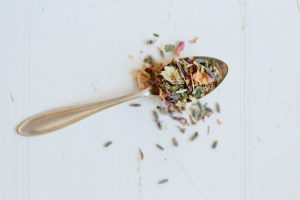The Naturopathic Co.

You're using an outdated browser. Please upgrade your browser to improve your experience.
The old adage, you are what you eat, is absolutely true. Everything you eat, affects your health. If you have an existing health condition, it’s amazing to see the improvements that can be made with some fairly simple changes to diet.
Whether it be removing from the diet, or adding something else in; diet should be one of the first considerations when treating most health concerns, because our food intake makes up the building blocks of our health.
Although there are dietary changes we can recommend for specific health conditions, there are also some general recommendations that can make an improvement to anyone’s health, and regardless of whether you have an existing condition or not.
Balancing gut issues is a main point of focus when treating the majority of conditions, as good health stems from the gut. Avoiding processed foods, inflammatory oils, sugar, stress, and unnecessary medications all play an important role in good health.
It’s important to regularly consume foods that naturally boost detoxification. Not only can we boost our body’s ability to detoxify through fibre, but we can eat foods which support the liver. When you have a healthy liver, it means the body doesn’t need to compensate in other ways in order to remove toxins and waste. The body’s elimination system all works together in sync, but when we find our liver is strained then we start to see symptoms in the skin or the bowel because these organs have not been able to take over for the burdened liver.
Foods to increase liver function are bitter foods, lemon, cruciferous vegetables, grapefruit, berries, beetroot, dandelion, artichokes, and most alkaline foods (greens).
Most importantly, minimise the amount of food or drink which places a burden on the liver (inflammatory oils, alcohol, sugars, medications), and ensure you exercise regularly in order to assist the liver’s eliminatory function.
If faeces move too slowly through the bowel, then toxins can be re-absorbed into the bloodstream and recirculated through the body. That’s why it’s so important to empty the bowels daily, and the more fibre we eat, the more easily our body can do that. Not many people eat the recommended daily intake of fibre. Each day, we should be consuming 5-7 serves of vegetables per day. 1 serve equals approximately half a cup. By boosting our fibre intake, we not only get a higher dose of antioxidants to combat aging and inflammation, but we more easily remove the toxicity and waste from our body.
High fibre foods include fruits and vegetables, preferably with the skin intact, mucilage grains (wholemeals), chia seeds, flaxseeds, and nuts.
This recommendation is two-fold. Firstly, fluctuating blood sugar levels caused by eating high GI foods leads your body to release more insulin than it needs, which has been linked to many conditions such as acne, hormonal fluctuations, psoriasis, diabetes, mood disorders, and weight gain. Secondly, high GI foods are high in starch, which also causes problems in flaring conditions such as thrush, tonsillitis, candida, and any issues involving gut dysbiosis (which are many).
Choose lower GI foods such as non-starchy vegetables and pair them with a good quality protein at each meal. Eating protein at breakfast and regularly throughout the day helps to stablise blood sugar and is necessary to create healthy hormones. Protein is also very important for the structure of organs, bones, and muscles. Protein foods are comprised of 20 amino acids – of which 9 are essential and can’t be made by the body and therefore must come through diet. Don’t be confused into thinking that you can only obtain protein from animals though, as there are many good protein plants sources such as tofu, avocado, tempeh, nut butters, edamame, hummus, peanuts, almonds, spirulina, quinoa, chia seeds, beans (pulses/legumes).
It’s important to regularly consume healthy fats, such as those from avocados, olive oil, coconut oil, flaxseeds, chia seeds, nuts, and wild caught fish such as salmon. These healthy fats (when not heated) provide anti-inflammatory antioxidants and protect us from free radical damage. Healthy fats are particularly important for skin conditions and any inflammatory or autoimmune disorder.
Free radicals cause harmful oxidation resulting in DNA damage, disease, and accelerated aging, but antioxidants provide a protective effect. The best way to ensure a high antioxidant intake is to regularly consume a rich source of colourful fruit and vegetables, as well as nuts, seeds, legumes, and seafoods. Ten powerful antioxidants that we should all be consuming regularly are: glutathione, astaxanthin, resveratrol, curcumin, proanthocyanidins, quercetin, CoQ10, lutein, vitamin C, and hydroxytyrosol.
By intaking high antioxidant levels, we provide a protective effect to the body. If insufficient antioxidants are consumed, the body is unable to revert the harmful effects of free radicals and oxidation, which is when we see accelerated aging, lowered immunity, and health conditions flare.
Every day we are bombarded with toxicity. It puts our body (liver) under strain as we aim to filter out all the waste. Most people have room to move in terms of reducing toxicity exposure levels in their everyday life. A good place to start is by taking a look at your home and noticing the chemical exposure. Cleaning products, make up, candles, perfume, and pesticides on food all place an extra burden on us, and if we can make better/smarter choices and minimise these nasty products, then it supports us in good health.
Yvette is a qualified Melbourne-based Naturopath and Nutritionist, MINDD Practitioner, member of the Naturopaths and Herbalists Association of Australia, and Complementary Medicine Association. Yvette specialises in the treatment of conditions commonly affecting women and children, with a key interest in children’s digestive and neurological conditions, as well as women’s hormonal concerns, digestive issues, fatigue, anxiety, and skin concerns. Yvette consults in South Yarra, Melbourne, as well as Australia-wide via skype/zoom/phone.
The Naturopathic Co. Melbourne Naturopath 2020
Comments are closed.